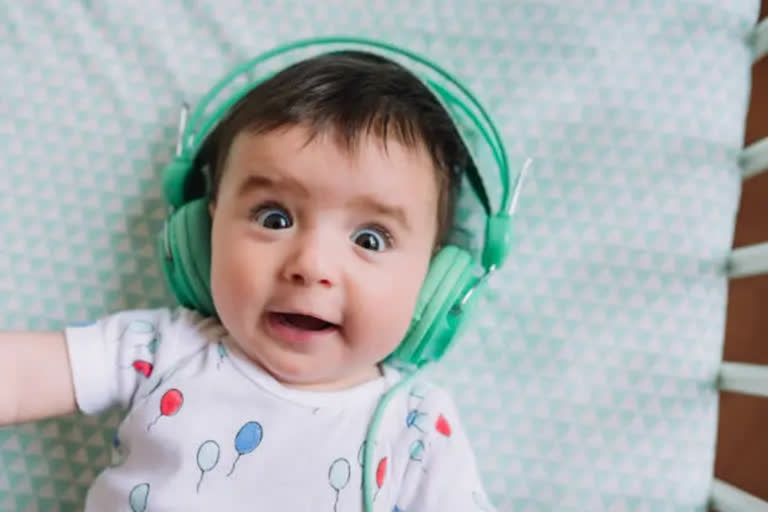Dundee (Scotland): Music is the language of emotions, arousing and regulating our feelings. For example, research has shown that college students listen to music 37 per cent of the time, and it fills them with happiness, elation or nostalgia during 64 per cent of these sessions. Children might have even greater exposure to music than adults do. Survey data shows that 54 per cent of teachers in South Korea use background music in schools. We also know music is played as often as 6.5 times per hour to help children's learning in US classrooms.
But how early do children develop a real appreciation for and understanding of music? Our recent study, published in Psychological Studies, suggests newborns may be rather musical, finding happy music soothing in particular. This could be seen as surprising because, ultimately, culture plays a major role in when and how we understand music it's something we learn. Preschoolers, for example, are often unable to pair pictures of happy or sad faces with happy or sad music. Such ability usually develops later in childhood.
It has long been unclear whether newborns and young children feel emotions in music. But we know that newborns respond to aspects of music, such as its beat, structure as well as consonance and dissonance. Young infants also love motherese, a very musical, melodic and slow type of speech that adults often adopt when talking to babies.
Even those babies who can hear but were born to deaf parents (who don't speak to them in this way) pay attention to such speech or maternal-style singing. Some research suggests even foetuses seem to respond to music. One study has shown that when pregnant women at the 28th week of gestation listen to their favourite songs, their foetuses' heartbeats increase, even though the mothers show no change in their heart rates.
Other studies, however, have failed to find any such reaction in foetuses. Music is often trialled to help prematurely born babies in neonatal intensive care units. But of the ten most rigorous studies with newborns in intensive care units, only half found any behavioural response to music, such as reduced crying, stress or pain. And only half of the studies found any effect on heart rates or blood pressure. That said, very few studies have looked at how healthy, full-term newborns react to music. And no studies have examined how they respond to emotions in music.
Happy is calming:Our team looked at how music affected healthy newborns, who were carried to term. First, we wanted to select a music piece that was really happy, and another that was really sad. Two experimenters collected and listened to hundreds of lullabies and children's songs and selected 25 of these that sounded happy or sad. Only six of these were sung in English (Simple Simon, Humpty Dumpty, Hey Diddle Diddle, Little Miss Muffet, Ding Dong Bell, Little Bo Beep) while the others were in various other languages.
Also read:Are mattresses responsible for triggering stress & anxiety?
